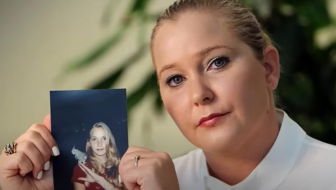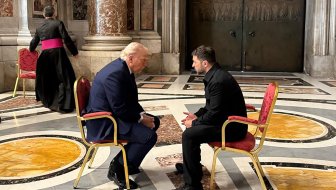Spain takes over the rotating six-month EU presidency from Sweden on Friday (January 1st), a month after the long-debated Lisbon Treaty entered into force, introducing a set of new rules and marking the start of a new era for the Union.
Aimed atstreamlining EU decision-making and boosting the 27-nation bloc's influence onthe global stage, the treaty also created two key posts -- a full-timepresident and a more powerful foreign policy chief.
FormerBelgian Prime Minister Herman Van Rompuy will formally begin his two-and-halfyear mandate as EU president, or president of the European Council as is theofficial title, on Friday. Britain's Catherine Ashton will assume her duties asthe bloc's high representative for foreign affairs and security policy thatsame day.
Ahead of thestart of its fourth stint at the EU helm since it joined the Union in 1986,Spain said earlier this month that it will work in close co-operation withBelgium and Hungary, the next two presidency holders. The trio's goal will beto ensure greater consistency in leadership.
SpanishForeign Minister Miguel Moratinos said on December 18th that Madrid recognisesthe primacy of Van Rompuy and Ashton's positions within the new EU architectureand is not planning to compete with them, but to support them.
"Theengagement of the prime minister of Spain and of the entire Spanish governmentis that we have new European representatives who will lead, give momentum andwill steer [the bloc] through the first semester of 2010," Brussels-basedEurActiv quoted him as saying. "Spain will not abandon its responsibility... but we will do it with modesty, with discretion, through our work and oursupport."
Unveilingthe agenda of the Spanish EU presidency, Moratinos cited four main priorities,foremost among them full and effective implementation of the Lisbon Treaty.
Madrid"will take due steps to instigate the regulations necessary to develop theTreaty and, in particular, to establish the European External ActionService", according to the official programme of the Spanish EUpresidency. "It is also our goal to consolidate a balanced working formatto ensure that the rotating presidencies become an efficient and complementarytool for the new institutions."
While thegovernment in Madrid will play a key role in preparing EU meetings, Van Rompuywill be the one who will chair summits, speak to the press and steer the bloc'sagenda. Spanish Prime Minister Jose Luis Rodriguez Zapatero will chair somelower-level meetings.
Likewise,Ashton will preside over the EU foreign ministers' meetings. Moratinos willonly co-chair with her the informal two-day gathering of the bloc's top diplomatsopening in Cordoba on March 5th.
Another keypriority listed in the programme of the Spanish EU presidency will be "toguarantee the economic recovery of Europe through greater co-ordination ofevery member state and the approval of the European strategy for sustainablegrowth for 2020".
The othertwo important priorities Spain will focus on during its six-month term will bestrengthening the 27-nation bloc's presence and influence on the world stage,as well as placing European citizens at the centre of the bloc's policy, withparticular attention to gender equality.
In regard toEU enlargement, Spain has made clear that it wants to see Croatia's accessiontalks wrapped up before the end of June, when it will hand over the rotatingpresidency to Belgium, and has voiced support for Turkey's progress in itsnegotiation process. Madrid has also pledged to make efforts towards resolvingthe long-standing name dispute between Macedonia and Greece, to pave the wayfor the launch of EU membership talks with Skopje.


































